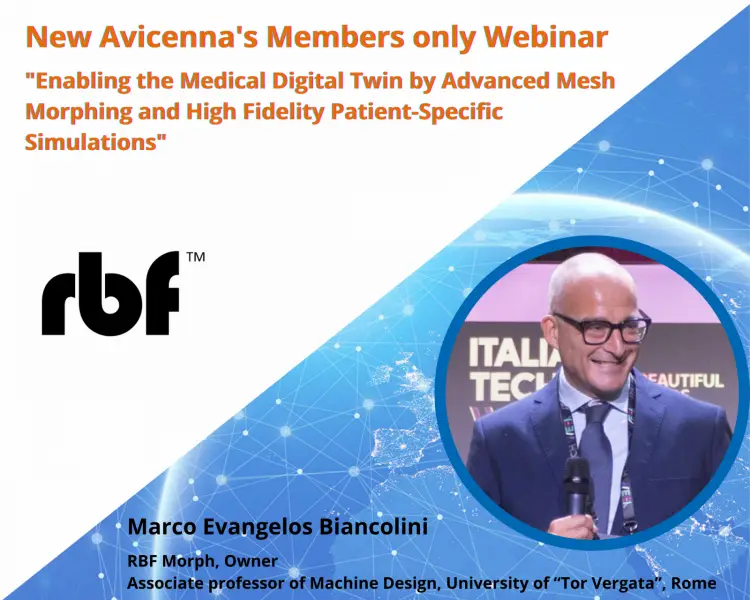In a webinar held on March 5, 2024, we delved into the future of healthcare, exploring the potential of “Enabling the Medical Digital Twin by Advanced Mesh Morphing and High Fidelity Patient-Specific Simulations.” Hosted by Avicenna Alliance, the event provided a comprehensive overview of the in-silico approach in healthcare applications, led by our founder, Dr. Marco Evangelos Biancolini.
The in-silico approach, a cornerstone in healthcare advancements, demonstrated its well-established presence in cardiovascular and human airways models. High-fidelity simulations showcased their ability to predict flow fields, interactions with moving walls, and intricate particle dynamics. While the readiness of this approach is commendable, the webinar emphasized the crucial need for tools to seamlessly integrate these methodologies into daily clinical use, paving the way for the creation of accessible digital twins.
Dr. Biancolini elucidated a potential pathway to enable medical digital twins, involving upfront high-performance computing (HPC) simulations. This strategy included conducting comprehensive scans, compressing results through advanced techniques like Singular Value Decomposition (SVD) and Proper Orthogonal Decomposition (POD), and correlating input parameters with reduced models using Artificial Intelligence and Machine Learning (AI-ML). Real-time interaction with the reduced model emerged as a key component in this innovative approach.
The webinar illustrated practical applications of this approach through two EC project FF4EuroHPC experiments. The DiTAiD experiment focuses on the parametric modeling of human airways, swiftly adaptable to specific patients for informed decision-making. The Copernicus experiment showcases defining a virtual surgery for a cyanotic infant undergoing the Modified Blalock-Taussig Shunt procedure, emphasizing the potential of personalized medicine.
You can download the presentation here.



